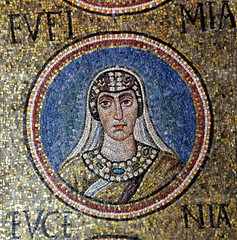 Image via Wikipedia
Image via Wikipedia
This is the seventh of eight posts reflecting upon a recent paper released by the Conference of European Churches. The background can be found in a post on Methodist Ecumenical News. The paper is Visions of Unity in Our Churches - Points of Convergence.
The report includes eight points of convergence and I thought it might be interesting to consider them one by one.
Convergence 7
The unity of the Church also requires both conciliar fellowship and mutual reception of conciliar decisions by the churches. There need to be structures that allow us to receive and reflect together on ecumenical texts, including the challenges outlined in the previous points of convergence.
Again there are a mass of assumptions in this text. The phrase 'mutual reception of conciliar decisions' gives the game away. What it means is that the councils of the churches make their decisions and then the rest of us will need to be persuaded or cajoled into following them.
Wouldn't it be better all round if local churches, that's the churches that are working towards unity (or picking up shards of past failures) were a part of the decision making, rather than meekly receiving what has already been decided by academics and power politicians?
We really need to get away from the idea that there is a band of courageous theologians who can sort out the problems facing the churches. They are part of the problem. We need a new generation who understand unity as a task for the whole people of God.
The aim is not to safeguard the interests of the hierarchies but to bring to birth something new and unexpected. Many of us no longer share the interests of those who lead the churches. But we're also fed up with growth through schism. There has to be a way of ordering our lives so that we can choose which tradition we belong to, whilst making a contribution to the life of the whole of the church.


















Recent Comments